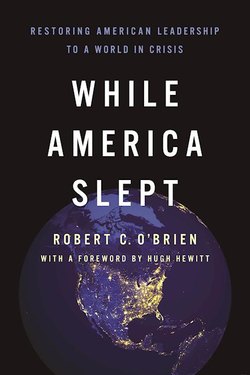Читать книгу While America Slept - Robert C. O'Brien - Страница 13
На сайте Литреса книга снята с продажи.
ОглавлениеUkraine Votes for a Future in Europe
On Sunday night, I sat in a chilly school gym while election officials in the city of Lviv went through the tedious process of counting and reconciling paper ballots for Ukraine’s parliamentary election. Millions of Ukrainians went to the polls on Sunday to elect a new Parliament, less than a year after former president and Putin puppet Viktor Yanukovych was ousted in the Maidan protests. There was no heat, because most of the gas that powers Ukraine comes from Russia and is too expensive to use this early in the season. Despite the conditions, however, I will not forget the Ukrainian people I met while observing their election.
There was a kindly grandmother running a rural polling station, who was so proud to have a foreign observer, especially an American, visit her village. She told me that the little hamlet, aptly named Velyka Volya (“Great Freedom”), was the place where a group of Ukrainian resistance fighters, in a 1946 version of Masada, committed suicide rather than surrender to the encircling Soviet troops.
An elderly man at a downtown polling station shared his story. As a medical student following the Second World War, he joined the resistance and fought the Soviets until his capture in 1951. He was shipped to a Russian gulag and survived for six years before being released, but authorities prevented him from going home. He never returned to medical school. He was so happy to be serving as a precinct secretary in a democratic election in his native land. He pleaded with me for America to send arms and Kevlar so that Ukraine’s young men would have a fighting chance against Russian regulars.
This article was originally published in the National Interest, October 29, 2014.
A young mother arrived at a suburban precinct. In tow was her three-year-old daughter, dressed in a white snowsuit that matched her own. The little girl clutched and waved Ukraine’s blue and yellow flag and smiled the whole time that her mom underwent the formalities of casting her vote. The election was about the child. Her mom envisioned for her a future of freedom and the rule of law in the sunlit uplands of the West, not of despotism in the wintry East.
Fresh-faced kids manned the precincts. Of the seventeen precinct election committees my team visited, most had a majority of twenty-something members. Some were made up entirely of young people. The Maidan protests that claimed the lives of one hundred of their contemporaries inspired them to get involved and stop the apparatchiks from stealing another election. These young people are taking their country back. Corrupt, one-party rule has no part in their plans.
One of these young post-Maidan activists is Hanna Hopko. She is a thirty-two-year-old mom and committed Christian with a PhD in communications. Hopko has already established herself as a reformer who took on big tobacco in her effort to rid Ukraine’s bars and restaurants of secondhand smoke—no easy feat in a country where cigarettes are still sold everywhere. Hopko was the number-one candidate on the Samopomich Party list. Until Sunday, Samopomich had never contested a parliamentary election. What it lacked in national election experience, it made up for with a pro-European, free-men and free-markets platform. While it appears that President Petro Poroshenko’s bloc will win a narrow victory, the International Republican Institute exit poll shows Samopomich taking an unexpectedly strong third-place position. Dozens of its “outsider” candidates, led by Hopko, will now be demanding reform from inside Ukraine’s Parliament.
Finally, for the first time since the Soviets occupied Ukraine in 1918, there will be no Communist Party representation in Ukraine’s legislative assembly. When the exit polls were released just after 8:00 p.m., showing that the Communists were well below the 5 percent threshold for proportional representation, several Ukrainian voters pumped their fists and smiled. For them, this election was a welcome end to Communist influence over their lives.
Notwithstanding the war and the punishing economic circumstances Russia’s invasion and occupation have inflicted on them, Ukrainians are happy today. They showed the world that they remain unbowed in the face of aggression and are committed to a future in the democratic West.
